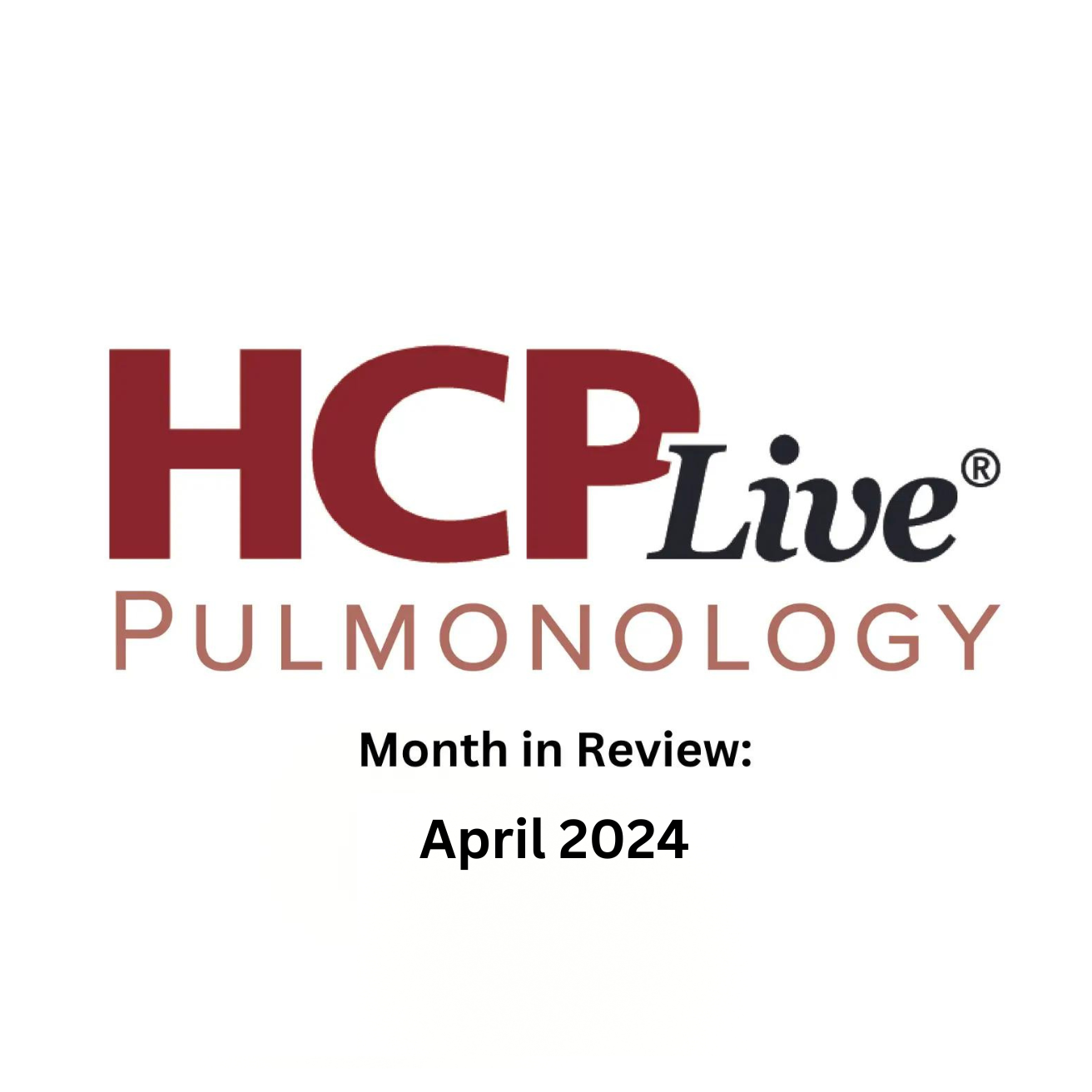Pulmonology Month in Review: April 2024
In this review of April 2024, the editorial team highlighted some of the biggest stories in the pulmonary health space, touching on topics such as air quality issues, asthma, and pneumonia.

In April, there were several advancements and unique studies that promise to impact the landscape of respiratory health in general. From topics such as trends in air quality issues, the use of 2 COPD classification systems, and research into links with childhood asthma and COVID-19, the month of April brought forth a variety of new data.
In this Month in Review article, the HCPLive editorial team highlights some of the top stories of the month in the field of respiratory health. These highlights from April demonstrate the fast-evolving nature of the pulmonology field.
Air Quality Issues Due to Particle Pollution with John Balmes, MD
This article was a summary of the latest episode of Lungcast, during with the American Lung Association (ALA) chief medical officer Albert Rizzo, MD, discussed the 2024 State of the Air Report with his guest John Balmes, MD, a professor of medicine emeritus for the University of California, San Francisco.
Rizzo and Balmes noted that almost 40% of US residents now live in an area with unhealthy air pollution levels, citing the ALA’s Report which provided a failing grade for ≥1 measure of air pollution. Balmes highlighted the most common form of particulate matter polluting the air, PM 2.5.
“These particles, when inhaled, make it down into the deep lung and a fraction of those fine particles includes even smaller particles called ultra fine particles which can go across the alveolar capillary membrane between the air sacs and the bloodstream and then circulate around the body,” Balmes explained. “These fine particles cause problems for people with lung disease, especially people with asthma, or chronic obstructive pulmonary disease exacerbations...”
No Association Identified Between COVID-19, Development of Asthma Among Children
In another study covered in April, SARS-CoV-2 polymerase chain reaction (PCR) test positivity was shown not to be associated with new diagnoses of asthma among children, though the study did reconfirm known risk factors for asthma among this population. These findings were the result of a retrospective cohort study authored in part by David A. Hill, MD, PhD, of the Children’s Hospital of Philadelphia.
Hill and colleagues had noted a lack of research assessing incidence of diagnoses following COVID-19 infections within the pediatric population. To address this gap in information, they conducted a study of electronic health records of subjects aged 1 - 16 years featured in the Children’s Hospital of Philadelphia (CHOP) Care Network.
Benralizumab Receives FDA Approval as Add-On Maintenance Therapy for Asthma
In April, AstraZeneca announced the US Food and Drug Administration’s (FDA) approval of benralizumab (Fasenra) as an add-on maintenance treatment for those with severe asthma and aged 6 - 11 years. The drug itself is a monoclonal antibody designed to bind to IL-5 receptor alpha directly on eosinophils and then result in blood and tissue eosinophil depletion through apoptosis.
“We welcome additional treatment options for children living with severe asthma, a condition that remains complicated to manage, further helping to address the unmet need in this patient population and reducing the burden of disease for the broader asthma community,” Allergy & Asthma Network CEO Lynda Mitchell, said in a statement accompanying the announcement.
GOLD Versus STAR: Comparing 2 COPD Severity Classification Systems
A notable study highlighted in April was the longitudinal study comparing the Global Initiative for Chronic Obstructive Lung Disease (GOLD) severity classification system the Staging of Airflow obstruction by Ratio (STAR) classification system, with GOLD determined to be superior based upon all-cause mortality and subjects’ COPD-specific health status.
The research, led by Koichi Nishimura of the National Center for Geriatrics and Gerontology in Obu, Japan, had been conducted to address common disagreements noted by the investigators in terms of COPD severity measurement.
“Since the authors are in the process of conducting a cohort study summary of our own institution, we attempted to compare STAR and GOLD using data obtained from our clinical practice since it is important to examine whether their hypotheses work for populations with very different backgrounds,” Nishimura et al. wrote. “The aim of the present study is to compare the staging of COPD using the GOLD and STAR classifications in clinical practice in Japan.”
Older Adults More Likely to Have Inappropriately Diagnosed Community-Acquired Pneumonia
In this April article, investigators found that those with dementia, those presenting altered mental status, those identified as older adults were groups who were each more likely to have experienced an inappropriate community-acquired pneumonia (CAP) diagnosis among patients who have been hospitalized.
This study, led by Ashwin B. Gupta, MD, from the Medicine Service at the VA Ann Arbor Healthcare System, had been a cohort study of 17,290 subjects who had been hospitalized for pneumonia in various hospitals located in Michigan. The collaborative initiative was called the Michigan Hospital Medicine Safety Consortium (HMS) and involved 48 hospitals in total by the conclusion of the team’s research.